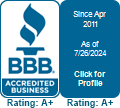| Tax Exempts Organizations (other than 501c3) |
 |
 |
 |
|
1. What organizations qualify for 501c4? - Civic Leagues, Social Welfare organizations - Organizations exempt under Section 501c4 must be organized exclusively for the promotion of social welfare. A 501c4 organization operates primarily to further the common good and the general welfare of the people in the community, such as by bringing about civic betterment and social improvements. - Examples of 501c4 organizations include volunteer fire companies, civic leagues, and community associations. - Although 501c4 organizations often conduct activities that are similar to those of 501c3 organizations, they are not constrained by many of the restrictions and prohibitions placed on 501c3 organizations. On the other hand, contributions to 501c4 organizations are not deductible for the donor.
2. What organizations qualify for 501c5? - Labor, Agricultural, or Horticultural Organizations; - Organizations exempt under Section 501c5 exist to better the conditions of workers, improve the grade of products or develop a greater degree of efficiency in particular occupations; - A labor organization is an association of workers who have combined to protect or promote the interests of the members by bargaining collectively with their employer to secure better working conditions, wages and similar benefits. The term includes labor unions, councils, and committees; - Agricultural and horticultural organizations are involved in raising livestock, forestry, cultivating land, raising and harvesting crops or aquatic resources, cultivating useful or ornamental plants and similar pursuits.
3. What organizations qualify for 501c6? - Business Leagues, Chambers of Commerce, etc. - Organizations exempt under Section 501c6 are associations of persons having a common business interest whose purpose is to promote such interest and not to engage in a regular business of a kind normally carries on for profit. Their activities are devoted to the improvement of business conditions in one or more lines of business rather than the performance of particular services for individual persons.
- Examples of 501c6 organizations are business leagues, chambers of commerce, real estate boards, and boards of trade.
4. What organizations qualify for 501c7? - Social and Recreation Clubs; - A social club exempt under section 501c7 is organized for pleasure, recreation, and other similar non-profit purposes, and substantially all of its activities are devoted to those purposes. Section 501c7 generally encompasses social and recreational clubs that are supported almost solely by membership fees, dues, and assessments, as well as fees charged to members for the use of the facilities; - Typical organization under this section include: College alumni associations that do not qualify as educational organizations; college fraternities or sororities operating chapter houses for students; country clubs; amateur hunting, fishing, tennis, swimming, and other sport clubs; dinner clubs that provide a meeting place and dining room for members; hobby clubs; garden clubs; variety clubs.
5. What organizations qualify for 501c8? - Fraternal Beneficiary Societies and Associations - A fraternal beneficiary society, order or association under 501c8 must: a. Have a fraternal purpose, b. Be operated under a “lodge system” consisting of local branches chartered by a parent organization for the exclusive benefit of the members, and c. Provide for the payment of life, sick, accident or other benefits to the members of such society, order or association or their dependants.
6. What organizations qualify for 501c10? - Domestic Fraternal Societies and Associations; - Section 501c10 domestic fraternal societies and associations are similar to section 501c8 fraternal beneficiary societies except that they may not provide life, sick, accident, or other benefits to members. Domestic fraternal societies must also devote their net earnings exclusively to religious, charitable, scientific, literary, educational, and fraternal purposes. College fraternities are not eligible for exemption under section 501c10, but may be eligible under section 501c7.
7. What organizations would qualify for 501c19? - Veterans’ Organizations - A section 501c19 veterans’ organization is a post or organization of past or present members of the Armed Forces, or an auxiliary unit of such a post or organization. An organization does not qualify for exemption under section 501c19 unless at least 75% of its members are past or present members of the Armed Forces of the United States and substantially all of the other members are cadets, or are spouses, widows, widowers, ancestors, or lineal descendants of past or present members of the Armed Forces or of cadets. - Veterans’ organizations must also be operated exclusively to promote the social welfare of the community, to assist disabled and needy war veterans and their dependants, to provide entertainment or care to hospitalized veterans, to carry on programs to perpetuate the memory of veterans, to conduct programs for religious, charitable, scientific, literary, or educational purposes, to sponsor patriotic activities, to provide insurance benefits to members or their dependants, or to provide social and recreational activities to members.
8. Are contributions to 501c4, 5, 6, 7, 8, 10 and 19 tax deductible? - Contributions to these organizations are generally not tax deductible as charitable contributions. - A contribution to a veteran’s organization is deductible only if at least 90% of the organization’s members are veterans of the Armed Forces of the United States. - A contribution to a domestic fraternal society, order, or association operating under the lodge system is deductible only if it is used exclusively for religious, charitable, scientific, literary, educational, and fraternal purposes, or for the prevention of cruelty to children or animals.
|

 Tax Exempts (other than 501c3s)
Tax Exempts (other than 501c3s)